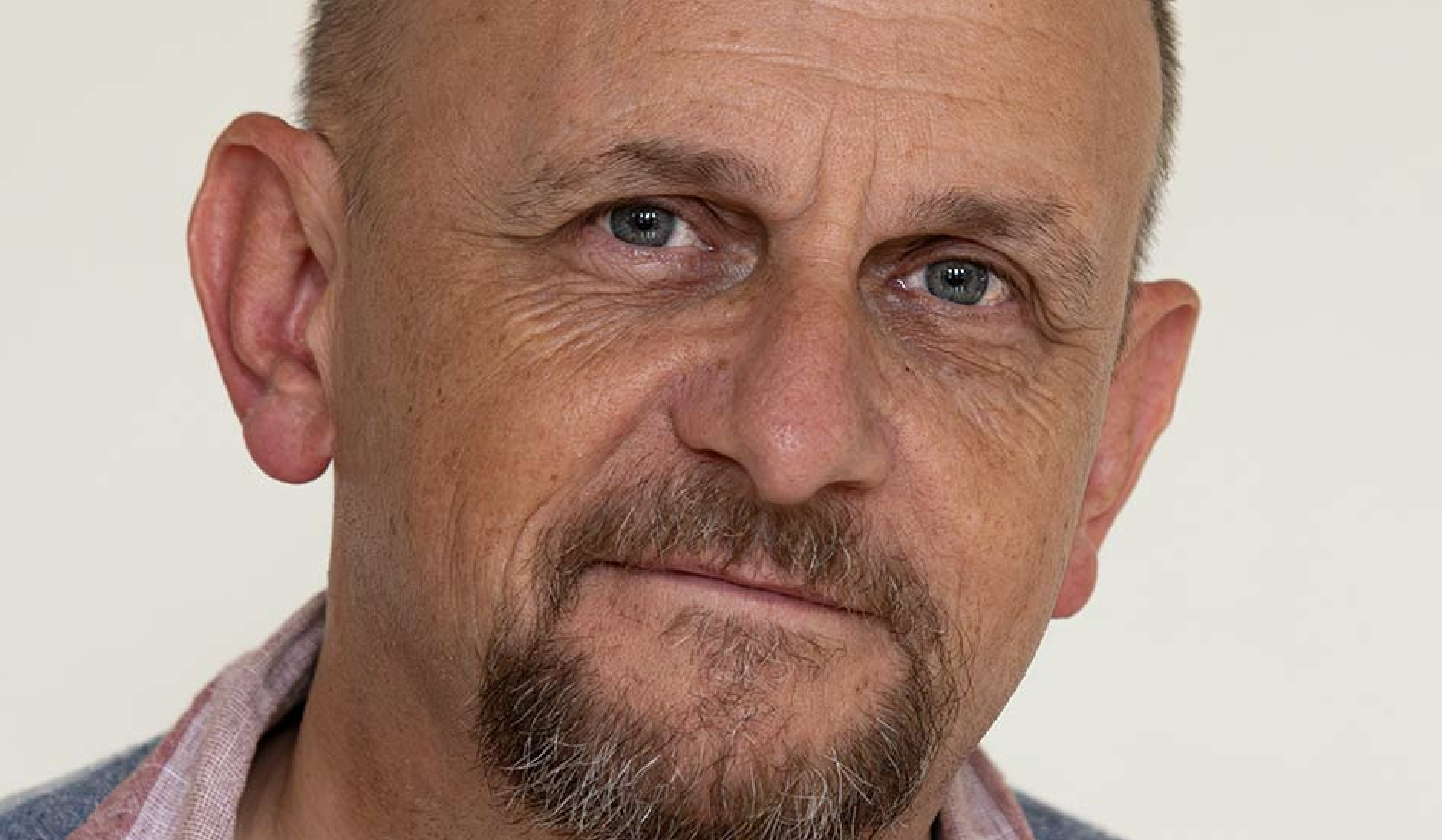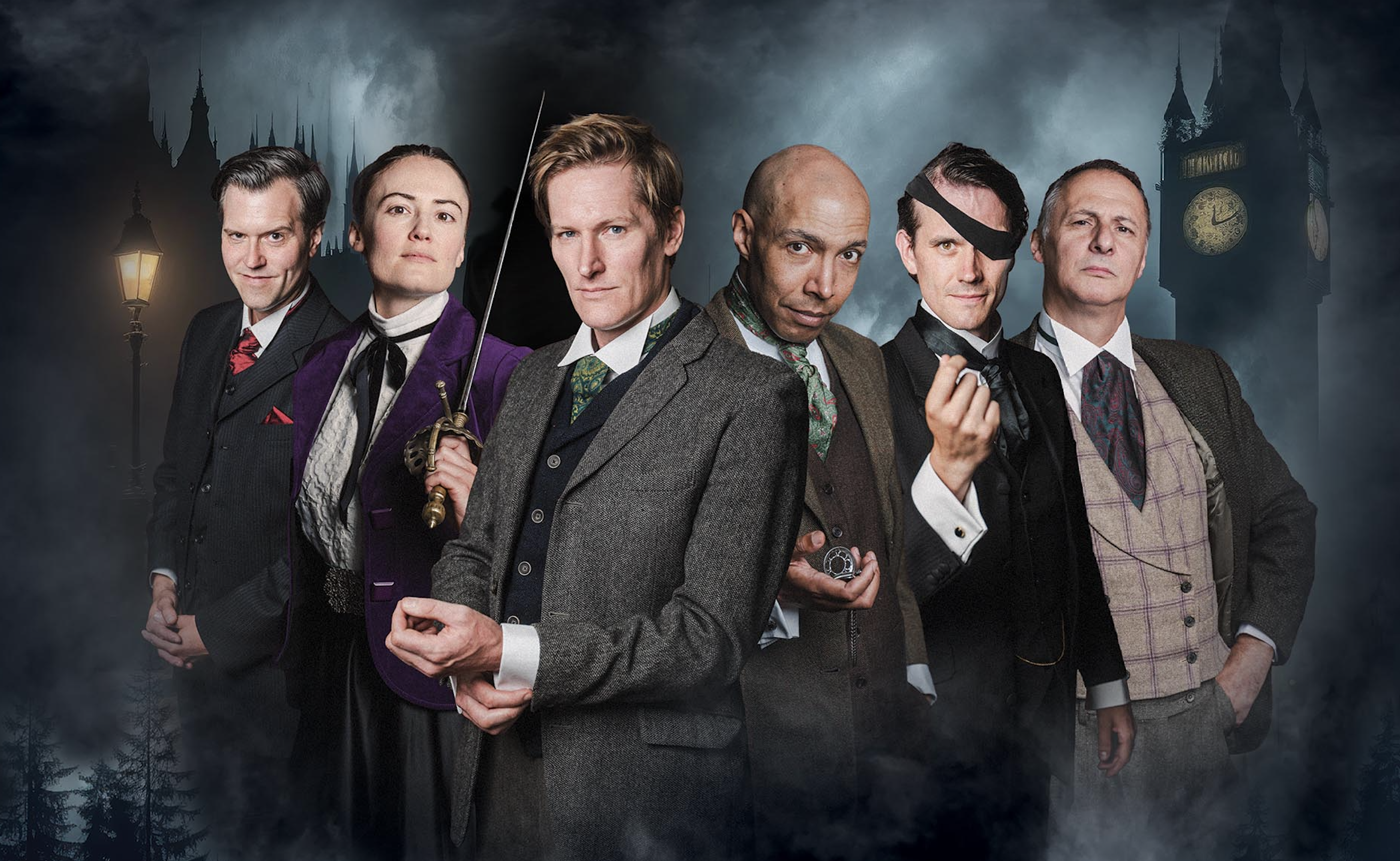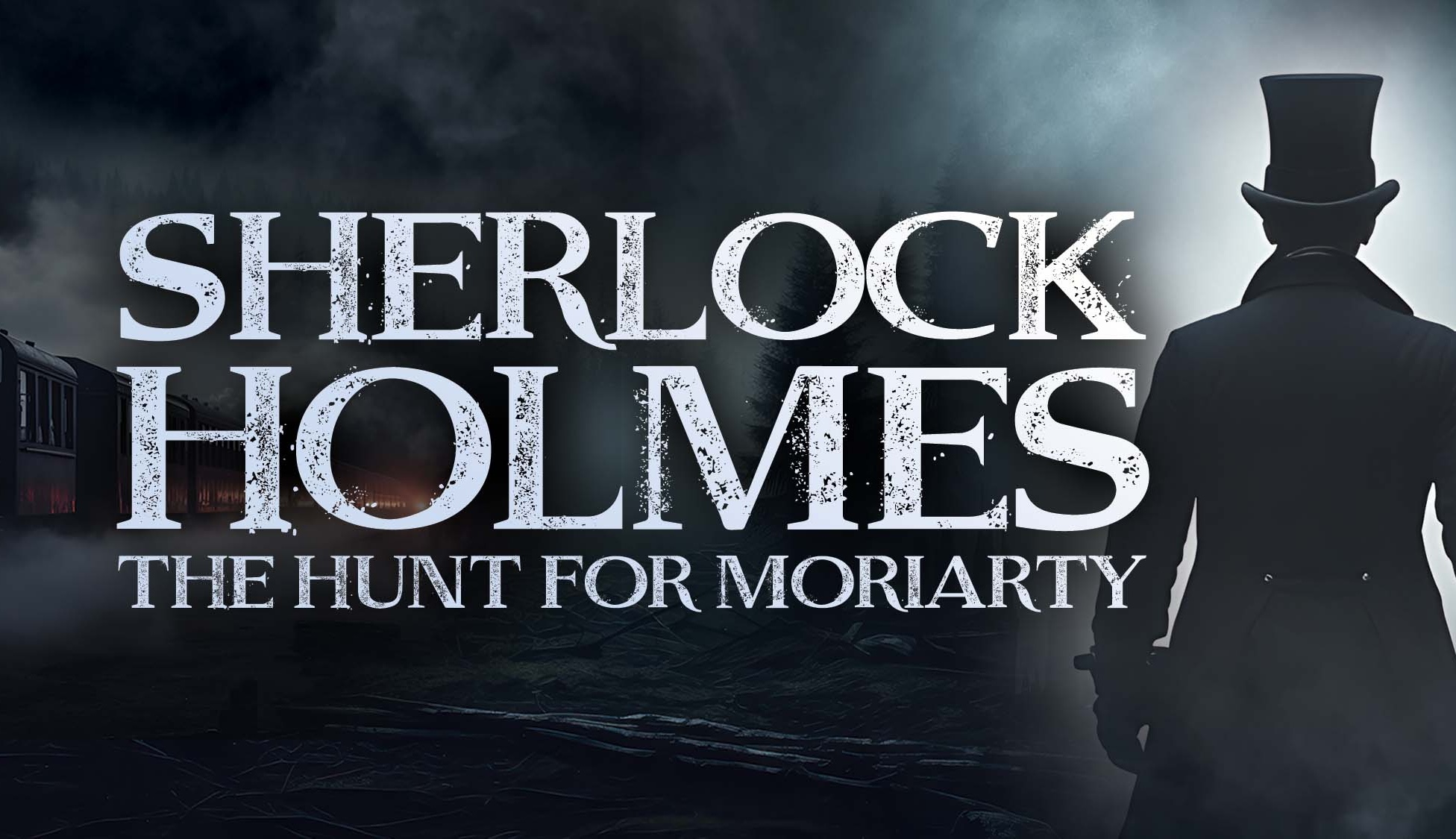Interview: Nick Lane of Sherlock Holmes and the Hunt for Moriarty
Playwright Nick Lane brings a fresh twist to Conan Doyle’s classics with Sherlock Holmes: The Hunt for Moriarty, a gripping new stage production touring the UK from September...

Hi Nick, do you recall first coming across Sherlock Holmes? Were you drawn in from the beginning?
I do. When I was a kid – I'm talking nine or ten, I would say – my mum would drop me and my sister Shelley off at my nana and Granddad's house on a Saturday afternoon and then go and do the weekly shopping in town. And most Saturdays, I remember the first part of the afternoon being one of them, spending time with Shell in the garden or at the table or wherever, while I’d draw pictures while watching a film with the other one. There would almost invariably be a black and white film on BBC 2 early on Saturday afternoon at that time, and we’d watch that (well, until four when the wrestling came on ITV; my nana loved the wrestling). Obviously, you don't really need to know any of this, and I promise I’m building up to the answer. I am!
Now, this might be a confabulation, but in my memory, there was one particular year where each week the film was a Sherlock Holmes adventure – one of the films featuring Basil Rathbone and Nigel Bruce (Holmes and Watson, respectively), and over the weeks and months, I saw quite a few of them. Some were set in the Victorian era – the earlier ones, I think – but others were set when they were made, in the 40s. Same fun mysteries though, and the same lead actors with the same chemistry.
So yes, that was my first memory of Holmes. It wasn't the books; the books I came to a bit later in life, but those films – those great old black and white movies with the dramatic music, and the brilliant use of light and shadow – that’s where I first discovered Sherlock Holmes.
And of course, the plots were great, but I genuinely think, even at that age, that it was the characters that made an impression on me. The inscrutable, smart, unflappable Holmes and the loyal, determined and, yes, rather bumbling Watson, and the way they interacted, absolutely drew me in.

With Sherlock Holmes’ long history and many adaptations, what new perspective did you aim to bring with this production?
Good question! Having written two previous Doyle adaptations (The Sign of Four and The Valley of Fear), both of those being full-length novels, it’s been fun to weave together a number of adventures from the short story collections by creating something original. And within that originality, to be able to emulate Doyle in another way – that of working in contemporary themes – has been very exciting.
As for new elements… well, it’s well-known to the readers of the Holmes canon that, as well as being a master sleuth and a violin player, he is also not unused to mixing things up physically, but it’s not really something I’ve dealt with in the two previous adaptations. Fortunately, thanks to a fantastic cast and a phenomenal fight choreographer, that side of Holmes will most definitely be shown!
You often explore the human side of iconic characters. Was there a particular character you wanted to explore?
Obviously I always love finding new things about Holmes and Watson – I love their dynamic, as we’ve already spoken about – and of course there’s Professor Moriarty, because it’s always a treat to write a villain character (once you’ve worked out the plot and what it is he’s doing), who can play and spar with Holmes as intellectual equals… I just want to say before I go on that I’m absolutely blessed with a brilliant cast who are bringing some phenomenal detail to their readings of each role, and it means I love exploring all the characters with them. It’s better that way, for me – if an actor has something that we can work together to create, it gives that actor real ownership, not only of their part within the play but of the play itself. And all that will probably read like I’m copping out and am not going to give you a particular character, but I’ll not do that – I love writing for Mrs. Hudson.
I've always been fond of her; I wish Conan Doyle had seen the potential of her as a character and given her more to do when he was penning his stories – she’s great fun to write. I guess because Conan Doyle was writing for a particular readership, predominantly consisting of affluent males who presumably had little to no interest in female characters, the women within the Holmes mysteries tend not to have a huge amount of agency (and no great voice within that world). Mrs. Hudson, essentially, delivers letters and conveys clients to 221B. Film and television adaptations have added more meat to the character’s bones, of course, and several authors have written great mysteries that position her as a sleuth in her own right. What I wondered, continuing on from the first two adaptations, is how her relationship with Holmes and Watson might have developed if she were allowed to have a voice in the room. To be listened to; to have ideas of her own. Could Mrs. Hudson become another part of the team?
So yes, I've always really enjoyed writing Mrs. Hudson, and… well, there are another couple of characters that I’ve had an absolute blast exploring, but I don't really want to speak too much about them yet. I want people to discover them onstage. I will say that these characters feature in the Holmes canon, but I’ve made certain changes that help inform and enrich the narrative. To say any more would be to give away elements of the plot, and I really don't want to do that. Sorry!
The story is set in London in 1901. How did the cultural and physical atmosphere of that time influence the play?
Well, the first thing to say here is that the story is actually set in 1900, not 1901! That’s my fault, and I can only apologise. When I wrote the Marketing blurb for the first flyer, I was still considering having the events of the play take place around the time of the death of Queen Victoria. Then I changed my mind! I know; terrible – I should have thought of it sooner, but once I was fixed on a plot for Holmes to foil, I realised it would work better against the backdrop of a dying monarch as opposed to one who has already gone. It’s the difference between looking at the impending political shift without knowing when that shift will happen and having the plot play out within the power vacuum created by Queen Victoria’s death.
For me, the date the play is set is an important part of keeping the story in the Victorian era – the real-world events of the time are used not just as a backdrop but as part of the engine that propels the narrative. There’s also something about the Holmes stories – with all due respect to all the modern takes on the character – that feels at home in the latter part of her Majesty’s reign. There were four decades between the publications of the first Holmes story and the last, in 1926, but even Doyle kept the bulk of his stories written after 1901 firmly set within the shadows and fog of Victorian London, like he belonged there. I think he might have been onto something!

What is interesting you in the UK culture scene right now? What’s caught your attention? (could be anything!)
The lamentable response to that question is I've been really, really busy – and of course I'm very lucky to have been so busy – but it's meant that I've missed – and continue to miss – so many things I wanted to see. I live in Doncaster, so I'm obviously away from home at the moment, rehearsing the play (in Bracknell).
There’s a play that opened this week in Leeds, which is pretty close for me to get to, called Reception – a musical using the songs of the indie band The Wedding Present (if you don’t know them, they formed in the mid-eighties – go out and get their records; start with their debut LP, George Best – songwriter and lead singer David Gedge is phenomenal). I’d love to go and see that, but it finishes before I’m home again.
Then the Stephen Joseph Theatre in Scarborough, where I work a bit, has just staged Michael Frayn's seminal Noises Off in the round. If you know the play, I’ve no idea how they’ve managed to stage it in that way… and I’ll never know, because I’m going to miss that as well.
There was a fantastic-looking community play in York, produced by York Theatre Royal, called His Last Report – it got amazing reviews in the national press. I was desperate to see that – missed that as well.
What else? John Godber, the man without whom I wouldn’t be writing this interview, let alone plays, wrote a play called The Highwayman last year – again, very well received critically – and remounted it a couple of months ago. I missed it the first time around and missed it again. I'm missing so many things. This has just turned into a list of regrets, hasn’t it?
At the moment, I've got three projects I’m working on, which I need to finish very soon. Once I do, I shall cut myself a slice of time before my next project begins in earnest and go and see some theatre. Ask me this question again in three months!
Learn more about Sherlock Holmes: The Hunt for Moriarty here.